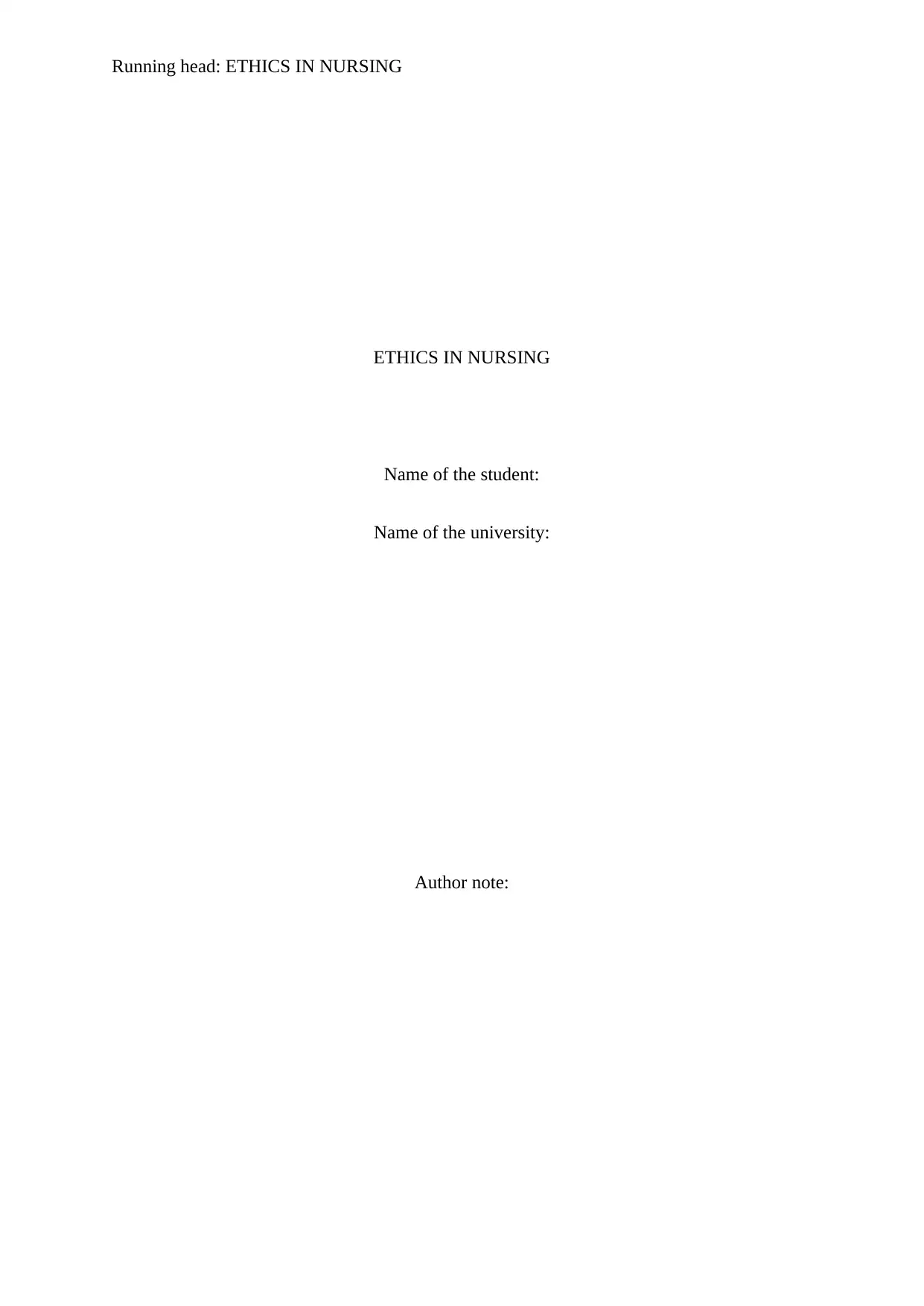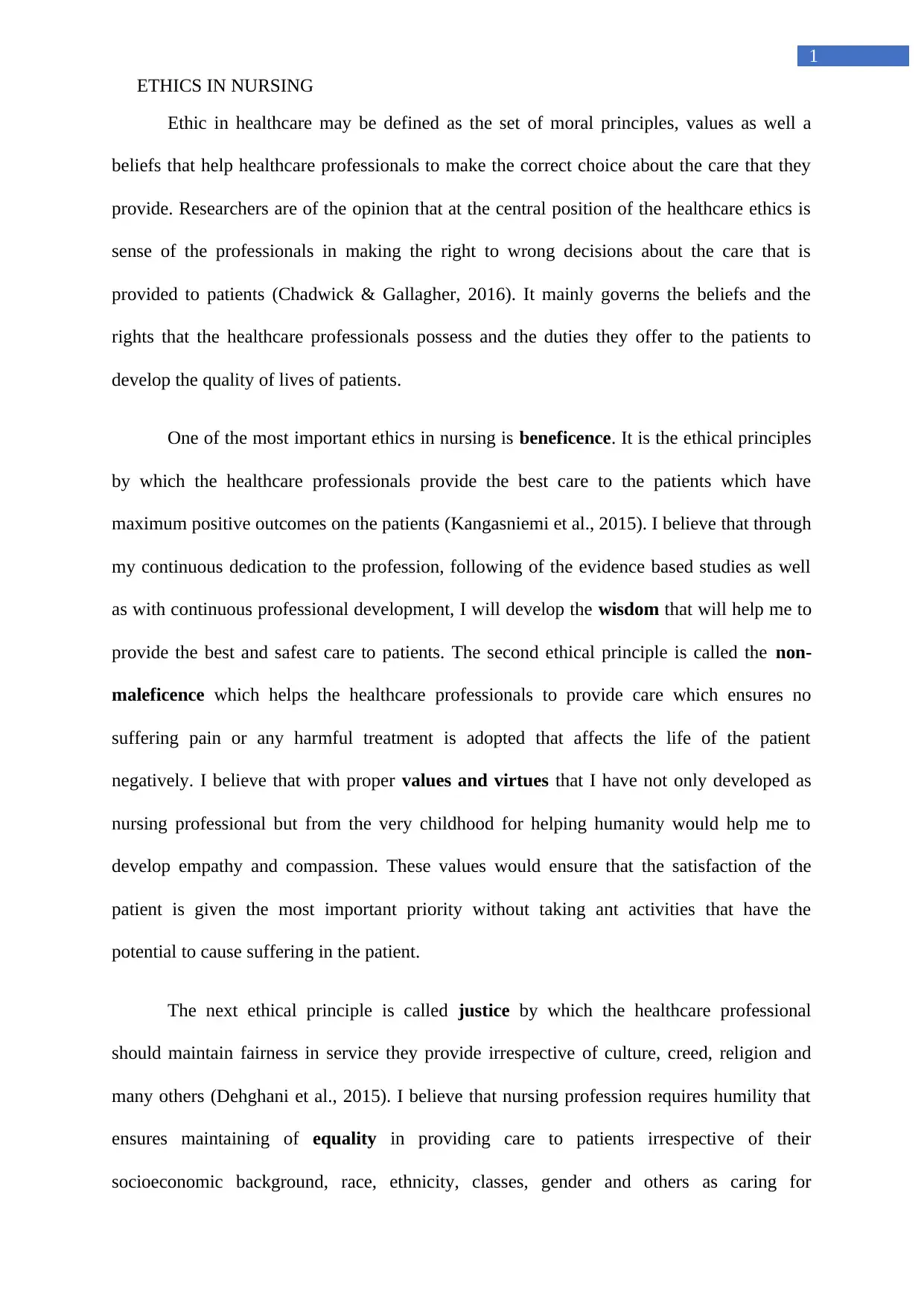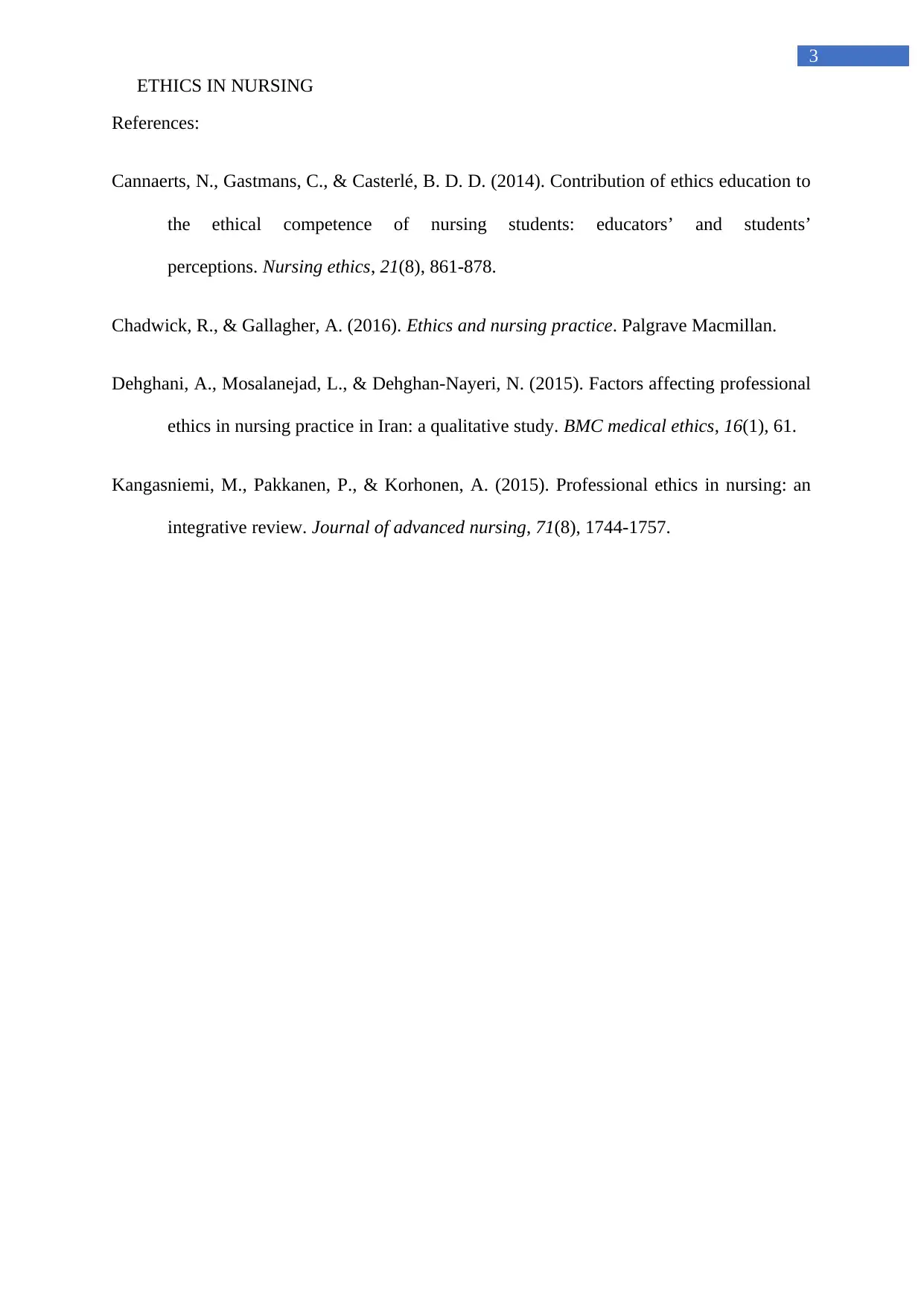Nursing Ethics: Exploring Core Principles and Ethical Considerations
VerifiedAdded on 2021/06/17
|4
|783
|49
Essay
AI Summary
This essay delves into the essential ethical principles that guide nursing practice. It begins by defining healthcare ethics as a framework of moral principles, values, and beliefs that inform decision-making in patient care. The essay then explores key ethical principles, including beneficence (doing good and providing the best care), non-maleficence (avoiding harm), justice (fairness in service), autonomy (respecting patient's rights and decisions), confidentiality (protecting patient information), and fidelity/veracity (dedication, truthfulness, and advocacy). The author, a nursing student, reflects on how these principles will be applied to their practice, emphasizing the importance of continuous professional development, empathy, compassion, humility, and maintaining patient trust. The essay highlights the significance of these principles in ensuring patient well-being, respecting human rights, and upholding the integrity of the nursing profession. It concludes by underscoring the commitment to providing the best and safest care, maintaining patient satisfaction, and advocating for the patient's rights and dignity, all while adhering to the core values of nursing ethics. The essay is supported by relevant academic sources that reinforce the importance of these principles in the field of nursing.
1 out of 4











![[object Object]](/_next/static/media/star-bottom.7253800d.svg)